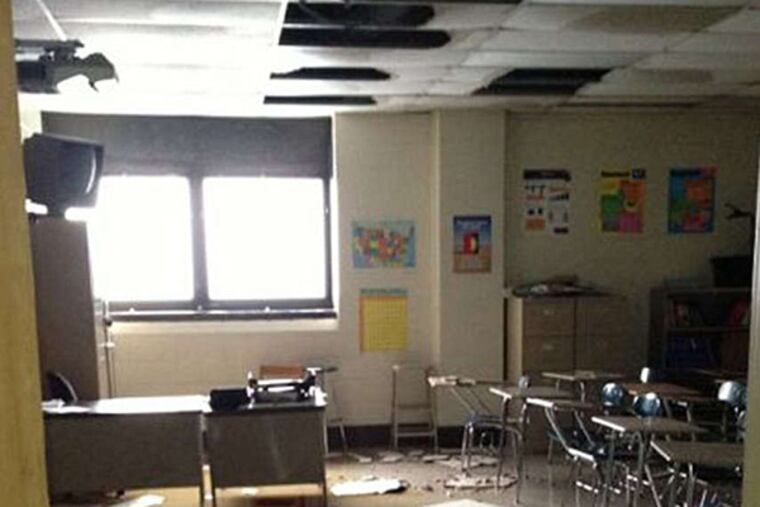With Edison High still under repair, union questions safety
Teachers' union consultant disagrees with district's decision to allow students, staffers back in the N. Philly school.

THE TEACHERS UNION is calling a decision late last week to reopen North Philadelphia's Thomas Edison High School - which closed for three days after the building sustained water damage when a coil burst in the heating/cooling system - potentially hazardous to its students and staff.
For now, students and staff are back in the school while a 45,000-square-foot section covering five floors is still cordoned off, school district spokesman Fernando Gallard said. The district hired a private company to clean up the damaged section, which he said is adjacent to the cafeteria.
The cafeteria has been cleared for occupancy by officials, Gallard said. The school was shut for three days beginning Jan. 6.
The southwest section of the school was supposed to be handed over to the district yesterday for additional cleanup, but that has been rescheduled for tomorrow, Gallard said.
But cordoning off a substantial part of the school can be problematic and goes against a basic tenet in the world of occupational health, said Jerry Roseman, a workplace-safety consultant to the Philadelphia Federation of Teachers' Health and Welfare Fund.
The district should follow the "precautionary principle," which focuses on protecting people, said Roseman, who has worked with the PFT on workplace-safety issues for 29 years.
"As a general rule, you would not have them occupy the space at the same time during such a major construction project," Roseman said, adding that he is concerned in Edison's case because of the volume of water that flooded into the school and its possible impact on the electrical and ventilation systems.
"It seems a prudent course of action to remediate and finish construction prior to occupancy," he said.
He also called for a nondistrict, independent evaluation to confirm the safety of the building before allowing students and staff back inside.
One example of unsafe conditions Roseman cited happened last week when the school was closed, although teachers and other staff were in the building: He said he was told last Tuesday by Francine Locke, director of the Office of Environmental Management Services, that maintenance workers had walked through the school carrying fiberglass rather than disposing of the materials through an outdoor chute.
The workers, wearing protective suits and face masks, made staffers who were present nervous, Roseman said Locke told him.
Workers placed the fiberglass in trash carts, took them down a service elevator and wheeled them through the school's main corridor, district spokesman Gallard said. Locke was "concerned that the workers did not follow protocol," Gallard said.
Roseman said Locke asked him to explain to staffers that the way the materials had been handled did not pose a safety risk. Roseman, however, said he declined to do so, because he didn't know the facts of the incident.
Roseman said, "Fiberglass is dangerous when handled in an uncontrolled environment," Roseman said, noting that the material is a known lung carcinogen.
After the incident, Gallard said, the district conducted an air-sample test, and the findings met air-quality standards.
Online: ph.ly/DNEducation